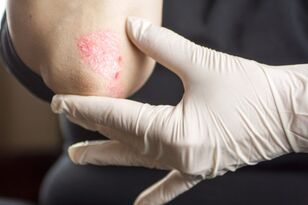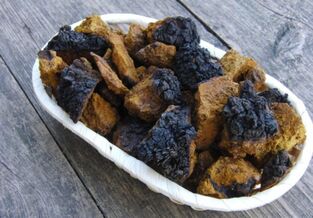Medication alone is not enough to cure psoriasis in various parts of the body. The greatest result will be given only by an integrated approach. Therefore, you need to know all possible ways to treat a skin disease.
Principles of psoriasis treatment
Before starting the fight against psoriasis, it must be considered that it is incurable. Therapy aims to combat symptoms, restoring the body's protective functions and the ability to establish a stable clinical remission.

The principles of treatment consist of several areas:
- drug therapy;
- physical therapy (used in combination with other forms of treatment);
- non-conventional alternative treatment;
- traditional medicine.
In the treatment of psoriasis, it is very important to take into account the individual characteristics of each organism. What works well for one patient does not always work for another. Every patient diagnosed with psoriasis requires serious careful treatment and special attention.
Drug therapy for psoriasis
External installations
To eliminate the inflammatory process, itching, swelling and other symptoms of psoriasis, medicines for external use are used. This includes:
- ointments; cream
- ;
- lotions;
- sprays;
- gels.
These funds should be used for mild and moderate forms of the disease. In severe forms, in most cases, these drugs are used in conjunction with other strong drugs. In this case, the doctor must determine the severity of the disease, taking into account individual intolerance to a particular medication. External remedies can be used on patients of any age.
In medical practice, ointments and creams are widely used, which are divided into hormonal and hormone-free. It is best to use non-hormonal agents as they have no side effects. However, in some cases, these drugs are unable to defeat the disease. Then, hormonal medications should be used, which perform the following actions:
- are used on purpose, act only on injuries;
- ointments suspend the development and spread of lesions;
- penetrates the deep layers of the epidermis;
- eliminates itching, flaking;
- relieves symptoms of allergic reactions.
For treatment, drugs from the group of glucocorticosteroids are also used, which have the following properties:
- removes the inflammatory process;
- eliminates itching and flaking;
- slows down the cell division process.
Steroids can have strong and moderate effects. In severe forms of psoriasis, strong-acting medications are prescribed in stages of mild course - milder medications. Topical corticosteroids include:
- Hydrocortisone acetate. The ointment is applied to the surface of the skin in a thin layer. The course of treatment is 6 to 14 days. If that were not enough, the course is extended to three weeks.
- Fluocinolone acetonet. It is used in all stages of psoriasis. With mild and moderate severity of the disease course, it is used as the main remedy, with the severe form - as an auxiliary.
- Prednisolone ointment. The course of treatment is 2 weeks. It is applied in a uniform layer only on the inflamed areas, which should not be bandaged.
Despite the effectiveness of treatment with hormonal drugs, unfortunately, its use can cause side effects. They have a strong effect not only on the epidermis, which later loses color and becomes thinner, but when used, there is a risk of disease recurrence. When dealing with hormones, a drug addiction develops, which other means cannot help. Due to the duration of steroid use, muscle weakness, decreased blood pressure and weight and poor appetite arise. Steroid drugs are sold in pharmacies without a prescription and are not recommended for long-term use.
The pharmaceutical industry produces a variety of treatments for hormone-free psoriasis that are great at fighting symptoms without harming the body.
All non-hormonal drugs are divided into several groups:
Indifferent ointments (do not contain active ingredients).
Salicylic ointment. It has anti-inflammatory and antimicrobial effects, softens the skin, accelerates the exfoliation process of the stratum corneum. The ointment contains salicylic acid, which quickly removes the affected areas. The ointment should be applied promptly, as allergies may occur.
Zinc ointment. The antiseptic has a drying and protective effect and can relieve inflammation. The composition includes zinc oxide. It is undesirable to use the ointment for more than 30 days, as it can develop an additive effect.
Zinc pyrithione. The drug is based on zinc pyrithione, which copes well with the inflammatory process, has antimicrobial and antifungal effects.
- Tar polishes. Preparations include pine and birch tar. These include anthrasulfonic, anthrax and colloid ointments, which are able to relieve inflammation, restore damaged skin and have a disinfectant effect. Ointments containing tar should be started with small doses. If allergic reactions do not occur, the dosage can be increased.
- Ointments containing grease. These ointments are considered the most effective among non-hormonal agents.
- Ointments containing vitamins. Retinol palmitate. Ointment with vitamin A. It has a healing effect, restores and normalizes the metabolic processes of tissues. Calcipotriol with vitamin D has an inhibitory effect on cells in the stratified epithelium (keratinocytes). It cannot be combined with salicylic acid ointments.
- Products that contain oil. Naphthalene ointment. The composition of the ointment contains Naftalan oil - a substance with a very unpleasant odor, but with unique actions. Promotes rapid skin recovery, has an antimicrobial, antipruritic and absorbent effect.
Oral Medicines
One of the ways to relieve the symptoms of the disease is to use medication in tablets. It is the pills that can provide the body with the necessary components. Treatment with pills is much more effective than topical drugs. Tablet preparations can only be prescribed by a doctor, taking into account the patient's age and physiological characteristics. Psoriasis pills are divided into two groups:
- hormonal - the most effective means, the use of which allows positive results to be obtained in a short time, but can cause many side effects;
- non-hormonal - performs the function of complementing the action of essential drugs.
The appearance of psoriasis is promoted by internal causes that are responsible for the violation of the body's metabolic processes.
Therefore, you need to resort to stronger drugs:
- Methotrexate. Pills that can significantly slow down the cell division process. It is used for pustular and erythrodermic psoriasis. It is widely used in the treatment of psoriatic arthritis. However, it has many side effects.
- Sodium meglumine succinate. A new generation drug with a broad spectrum of action. Used for severe psoriasis and is only available on prescription.
Alternative treatments
Drug-free methods and approaches are used as alternatives. Recommended:
- visit hot springs;
- take a course on peeling Garra Rufa fish (ichthyotherapy);
- undergo mud therapy sessions;
- hydrotherapy with fresh water; plasmapheresis;
- massage course.
However, these methods are effective only when combined with traditional treatments.
Physiotherapy for psoriasis
Physiotherapy is an important part of the treatment of psoriasis. In the early stage of the disease, physical therapy cannot be used. These methods begin to be used when the symptoms of the disease subside and are performed in a hospital.
Physical methods of exposure include:
- UV irradiation; puva
- therapy; ultrasound application
- ; laser treatment
- ;
- laser chemotherapy;
- magnetotherapy (application of a static magnetic field);
- exposure to cold (cryotherapy);
- electrosound;
- X-ray therapy.
Diet therapy for psoriasis
The diet plays an important role in the treatment of psoriasis. Therefore, it is necessary to know which food should be in the patient's diet. Proper nutrition restores intestinal function, helps to relieve painful symptoms, strengthens the immune system and protects the body from new relapses.

The list of products that have a negative effect on the condition of the skin and hair:
- Smoked and salted foods. The components contained in the products affect the functioning of the digestive tract and can negatively affect the condition of the epidermis.
- Citrus fruits. Large amounts of essential oils are found in the colored peel (peel) of the fruits, therefore, juices made by industrial method negatively affect the patient's condition.
- Nuts. They are a strong allergen.
- Fatty foods.
- Alcoholic beverages. They disrupt the work of the liver, which cannot cope with the purification of toxic substances from the blood, which negatively affects the state of the dermis.
- Chocolate and products containing cocoa are powerful allergens.
- Products with a high content of dyes.
The psoriasis diet should include:
- vegetables and fruits; cereals
- ;
- dairy products;
- fish;
- chicken meat;
- green.
Psoriasis requires drinking lots of fluids. You need to drink up to two liters a day.
Traditional medicine recipes for psoriasis
Effective treatment of psoriasis is possible through traditional medicine. They can be homemade products for internal use:
- medicinal decoctions and infusions;
- tablets and powders;
- means composed of many components.
Flaxseed infusion. Helps cleanse the body of toxic substances, slows down the development of the disease. Pour 20 g of seeds in a thermos, pour boiling water (250 ml). Before bed, drink activated charcoal (2 tablets). In the morning on an empty stomach, drink a tincture, eat the seeds.
Bay leaf decoction. Effective at the first signs of psoriasis. Pour boiling water over the chopped bay leaves. Let cool and strain.
Chaga birch mushroom. The active ingredients contained in the chaga restore the condition of the epidermis. Pour the mushroom (100 g) with hot water (1 l) overnight. In the morning, mash the mushroom in a blender until you get a mixture that resembles porridge in density. Bring the broth to 40 degrees, pour the chopped mushroom. Insist for three days.

For external use are used:
- homemade ointments;
- shampoos;
- collection of medicinal herbs.
For more effective treatment, herbal ointments should be applied to the affected areas of the body.
Propolis ointment. Grind 20 g of propolis and add 350 g of butter. Heat in a double boiler. Voltage. Apply to plaque locations. Store in the refrigerator.
Ointment of birch buds. Grind birch buds (100 g). Mix with tar (180 g) and ash (50 g). Stir until smooth. Rub in the affected area and wrap with plastic wrap.
Home therapeutic baths are also useful for psoriasis. Mix the string and celandine (100 g each) and pour three liters of water. Dissolve sea salt. Let it ferment for an hour. Pour in warm bath water.
Blue clay can be used for the treatment, combining it with sea salt. After taking this bath, the skin is very soft.
Effective remedies for treatment
The treatment of psoriasis on the elbows must be carried out in a complex, which includes the following:
- taking vitamins;
- diet;
- external treatment;
- physiotherapy;
- phototherapy.
Local medications (ointments, creams) are used to treat knee disorders. Perhaps the appointment of sedatives and antihistamines for complex treatments. With profuse bleeding, anti-inflammatory drugs are prescribed.
The treatment of psoriasis on the palms and feet is quite problematic. This is mainly caused by the constant irritation of these parts as a result of friction with clothing and frequent washing. If treatment with external agents does not give a positive result, then ultraviolet radiation is prescribed.

Treatment of psoriasis during remission
After the start of the remission period, all recommendations must be followed to maintain this state and prevent the disease from recurring. To prevent psoriasis from making itself felt for a long time, you need to take into account that:
- You cannot interrupt the course of treatment, but continue to take the prescribed medications.
- Do not use new drugs other than those prescribed.
- It is necessary to eliminate the symptoms of infectious diseases in time.
- During remission, try not to hurt the skin.
- Avoid nervous breakdowns.
- Don't abuse the sun.
- Avoid contact with chemicals.
- Try to use only natural materials.
- Observe skin care.
During this period, all recommended methods and means must be applied to prevent disease progression.























